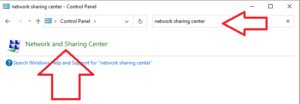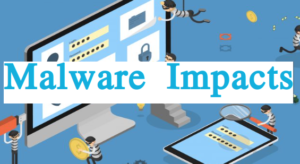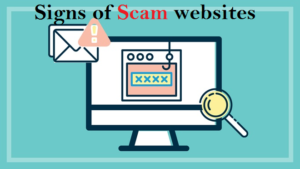How To Remove CCD Ransomware And Recover Infected Data
Simple Steps To Delete CCD Ransomware From Computer
CCD Ransomware is a kind of hazardous malware infection which tends to encrypt users’ crucial files and documents and then extort huge amount of ransom money from them. Belonging to the family of well-known Dharma Ransomware, this perilous crypto-virus is able to sneak into any Windows PCs without users’ consent and then makes several unwanted changes in default system’s settings. It locks the targeted files such as videos, audios, images, PDFs etc. using a powerful cryptography and also adds victim’s ID, [email protected] email address and appends “.ccd” extension with the name of each of them. After that, opening the compromised data becomes impossible for you without using the decryption software that is kept on attackers’ server.
Following successful encryption, CCD Ransomware drops a ransom note titled “FILES ENCRYPTED.txt” on the desktop and also displays a pop-up Window. The message in the pop-up states that to regain access to the infected files, victims need to contact the attackers [email protected] (or [email protected]) and provide their unique ID. Hackers ask you to pay them an amount of ransom in order to get the decryption tool and open the locked files. They also warn not to attempt to rename the encoded files or decrypt them using third-party software otherwise it may cause permanent data loss.
Text Presented In The Ransom Note:
YOUR FILES ARE ENCRYPTED
Don’t worry,you can return all your files!
If you want to restore them, follow this link:email [email protected] YOUR ID 1E857D00
If you have not been answered via the link within 12 hours, write to us by e-mail:[email protected]
Attention!
Do not rename encrypted files.
Do not try to decrypt your data using third party software, it may cause permanent data loss.
Decryption of your files with the help of third parties may cause increased price (they add their fee to our) or you can become a victim of a scam.
Should You Pay The Ransom?
This hazardous file-encoding malware doesn’t leave any option to you other than dealing with the hackers but still, security experts strongly deny from making any sort of payment to them. It has been tendency of such criminals that they often ignore the victimized people after taking the ransom or provide rogue software in the name of decryption software which only harms the machine severely upon getting installed. Also, paying ransom to the crook will only encourage them to drop more infections in the machine for future profits. And so, never trust on the hackers under any circumstance and find any alternate way to recover the compromised data. For this, you can use a powerful file-recovery application or if you have a recently made backup, you can easily restore them back. But first of all, you must delete CCD Ransomware from the computer immediately before it infects your other crucial data.
Other Harmful Traits of CCD Ransomware:
This perilous threat has ability to deactivate all the running security services and Windows Firewalls and make the computer vulnerable for more Online threats. It may easily bring other hazardous parasites like rootkits, adware, spyware, Trojans etc. in your work-station and turn the device into a malware-hub. It ruins vital system files which assure efficient PC functioning and prevents many installed apps as well as drivers from working in a proper manner. This notorious crypto-virus eats up huge amount of memory resources and drags down the overall computer performance severely. Due to this, machine starts responding slower than ever before and takes more than usual time to complete any task. CCD Ransomware enables remote hackers to get access to your device and steals all your personal and sensitive data for their delicate welfare. Using your confidential data relating to banking and other financial details, crooks can generate illicit revenues and cause you to be a victim of Cyber crime or Online scam.
How Does This Infection Enter Your System:
Such types of crypto-viruses generally infiltrate the targeted system through multiple illusive techniques such as spam email campaigns, Trojans, fake software updaters, questionable download sources, unofficial software activation tools etc. Nevertheless, the most common method used by Cuber actors to spread such parasites is by sending emails that contain malevolent attachments. Hackers usually attach MS office, PDF documents, exe files, and JavaScript files. Once you open the attachment, those spiteful files install some pernicious application.
Quick Glance
Name: CCD Ransomware
Type: Ransomware, Crypto-virus
Description- Destructive malware that aims to encrypt users’ crucial files and then ask them to pay off for the decryption key/tool.
Extension- “.ccd”
Ransom demanding message: Pop-up window and FILES ENCRYPTED.txt
Attackers’ Contact- [email protected], [email protected]
Symptoms: Users can not open files available on their desktop, previously functional files now have different extensions, A ransom demanding message is displayed on the desktop screen. Users are asked to pay an amount of ransom to unlock their encoded data and files.
Distribution methods: Torrent websites, spam emails, peer to peer network sharing, unofficial activation and updating tools.
Damage: All files are encrypted and cannot be accessed without paying ransom, Additional password stealing Trojans and malware infections can be installed along with ransomware infections and other malware.
Removal: To remove this virus from the system, we advise you to use a reliable anti-malware tool. Once malware gets removed, you can recover your files by using existing backup or data-recovery software.
How to Protect The System From Such Attack?
To Avoid the risk of being attacked by CCD Ransomware or other crypto-infection, you should not trust and ignore suspicious emails coming from stranger. Never open such emails that contain questionable attachment or web links. Moreover, avoid using software cracking tools since it is not legal. They always download and install malware on the computer instead of activating software. It is also recommended that download any application via direct download links and only official websites. Additionally, use a reliable anti-malware program and keep updating it from time to time. However, in case you are one of those users who are already a victim of this dangerous file-encoding malware, don’t waste any time. Just take an immediate action and remove CCD Ransomware from the work-station by following the complete removal steps given below.
Special Offer (For Windows)
CCD Ransomware can be creepy computer infection that may regain its presence again and again as it keeps its files hidden on computers. To accomplish a hassle free removal of this malware, we suggest you take a try with a powerful Spyhunter antimalware scanner to check if the program can help you getting rid of this virus.
Do make sure to read SpyHunter’s EULA, Threat Assessment Criteria, and Privacy Policy. Spyhunter free scanner downloaded just scans and detect present threats from computers and can remove them as well once, however it requires you to wiat for next 48 hours. If you intend to remove detected therats instantly, then you will have to buy its licenses version that will activate the software fully.
Data Recovery Offer
We Suggest you to choose your lately created backup files in order to restore your encrypted files, however in case if you don’t have any such backups, you can try a data recovery tool to check if you can restore your lost data.
Antimalware Details And User Guide
Step 1: Remove CCD Ransomware through “Safe Mode with Networking”
Step 2: Delete CCD Ransomware using “System Restore”
Step 1: Remove CCD Ransomware through “Safe Mode with Networking”
For Windows XP and Windows 7 users: Boot the PC in “Safe Mode”. Click on “Start” option and continuously press on F8 during the start process until the “Windows Advanced Option” menu appears on the screen. Choose “Safe Mode with Networking” from the list.

Now, a windows homescreen appears on the desktop and work-station is now working on “Safe mode with networking”.
For Windows 8 Users: Go to the “Start Screen”. In the search results select settings, type “Advanced”. In the “General PC Settings” option, choose “Advanced startup” option. Again, click on the “Restart Now” option. The work-station boots to “Advanced Startup Option Menu”. Press on “Troubleshoot” and then “Advanced options” button. In the “Advanced Option Screen”, press on “Startup Settings”. Again, click on “Restart” button. The work-station will now restart in to the “Startup Setting” screen. Next is to press F5 to boot in Safe Mode in Networking.

For Windows 10 Users: Press on Windows logo and on the “Power” icon. In the newly opened menu, choose “Restart” while continuously holding “Shift” button on the keyboard. In the new open “Choose an option” window, click on “Troubleshoot” and then on the “Advanced Options”. Select “Startup Settings” and press on “Restart”. In the next window, click on “F5” button on the key-board.

Step 2: Delete CCD Ransomware using “System Restore”
Log-in to the account infected with CCD Ransomware. Open the browser and download a legitimate anti-malware tool. Do a full System scanning. Remove all the malicious detected entries.
Special Offer (For Windows)
CCD Ransomware can be creepy computer infection that may regain its presence again and again as it keeps its files hidden on computers. To accomplish a hassle free removal of this malware, we suggest you take a try with a powerful Spyhunter antimalware scanner to check if the program can help you getting rid of this virus.
Do make sure to read SpyHunter’s EULA, Threat Assessment Criteria, and Privacy Policy. Spyhunter free scanner downloaded just scans and detect present threats from computers and can remove them as well once, however it requires you to wiat for next 48 hours. If you intend to remove detected therats instantly, then you will have to buy its licenses version that will activate the software fully.
Data Recovery Offer
We Suggest you to choose your lately created backup files in order to restore your encrypted files, however in case if you don’t have any such backups, you can try a data recovery tool to check if you can restore your lost data.
In case if you cannot start the PC in “Safe Mode with Networking”, Try using “System Restore”
- During the “Startup”, continuously press on F8 key until the “Advanced Option” menu appears. From the list, choose “Safe Mode with Command Prompt” and then press “Enter”

- In the new opened command prompt, enter “cd restore” and then press “Enter”.

- Type: rstrui.exe and Press “ENTER”

- Click “Next” on the new windows

- Choose any of the “Restore Points” and click on “Next”. (This step will restore the work-station to its earlier time and date prior to CCD Ransomware infiltration in the PC.

- In the newly opened windows, press on “Yes”.

Once your PC gets restored to its previous date and time, download the recommended anti-malware tool and perform a deep scanning in order to remove CCD Ransomware files if they left in the work-station.
In order to restore the each (separate) file by this ransomware, use “Windows Previous Version” feature. This method is effective when “System Restore Function” is enabled in the work-station.
Important Note: Some variants of CCD Ransomware delete the “Shadow Volume Copies” as well hence this feature may not work all the time and is applicable for selective computers only.
How to Restore Individual Encrypted File:
In order to restore a single file, right click on it and go to “Properties”. Select “Previous Version” tab. Select a “Restore Point” and click on “Restore” option.

In order to access the files encrypted by CCD Ransomware, you can also try using “Shadow Explorer”. In order to get more information on this application, press here.

Important: Data Encryption Ransomware are highly dangerous and it is always better that you take precautions to avoid its attack on your work-station. It is advised to use a powerful anti-malware tool in order to get protection in real-time. With this help of “SpyHunter”, “group policy objects” are implanted in the registries in order to block harmful infections like CCD Ransomware.
Also, In Windows 10, you get a very unique feature called “Fall Creators Update” that offer “Controlled Folder Access” feature in order to block any kind of encryption to the files. With the help of this feature, any files stored in the locations such as “Documents”, “Pictures”, “Music”, “Videos”, “Favorites” and “Desktop” folders are safe by default.

It is very important that you install this “Windows 10 Fall Creators Update” in your PC to protect your important files and data from ransomware encryption. The more information on how to get this update and add an additional protection form rnasomware attack has been discussed here.
How to Recover the Files Encrypted by CCD Ransomware?
Till now, you would have understood that what had happed to your personal files that got encrypted and how you can remove the scripts and payloads associated with CCD Ransomware in order to protect your personal files that has not been damaged or encrypted until now. In order to retrieve the locked files, the depth information related to “System Restore” and “Shadow Volume Copies” has already been discussed earlier. However, in case if you are still unable to access the encrypted files then you can try using a data recovery tool.
Use of Data Recovery Tool
This step is for all those victims who have already tries all the above mentioned process but didn’t find any solution. Also it is important that you are able to access the PC and can install any software. The data recovery tool works on the basis of System scanning and recovery algorithm. It searches the System partitions in order to locate the original files which were deleted, corrupted or damaged by the malware. Remember that you must not re-install the Windows OS otherwise the “previous” copies will get deleted permanently. You have to clean the work-station at first and remove CCD Ransomware infection. Leave the locked files as it is and follow the steps mentioned below.
Step1: Download the software in the work-station by clicking on the “Download” button below.
Step2: Execute the installer by clicking on downloaded files.
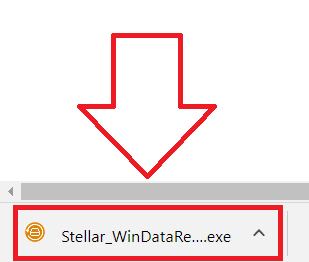
Step3: A license agreement page appears on the screen. Click on “Accept” to agree with its terms and use. Follow the on-screen instruction as mentioned and click on “Finish” button.

Step4: Once the installation gets completed, the program gets executed automatically. In the newly opened interface, select the file types that you want to recover and click on “Next”.

Step5: You can select the “Drives” on which you want the software to run and execute the recovery process. Next is to click on the “Scan” button.
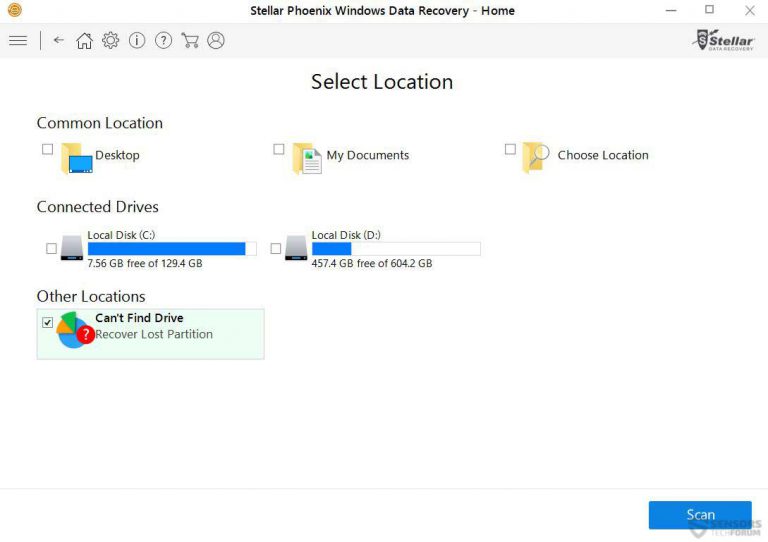
Step6: Based on drive you select for scanning, the restore process begins. The whole process may take time depending on the volume of the selected drive and number of files. Once the process gets completed, a data explorer appears on the screen with preview of that data that is to be recovered. Select the files that you want to restore.

Step7. Next is to locate the location where you want to saver the recovered files.

Special Offer (For Windows)
CCD Ransomware can be creepy computer infection that may regain its presence again and again as it keeps its files hidden on computers. To accomplish a hassle free removal of this malware, we suggest you take a try with a powerful Spyhunter antimalware scanner to check if the program can help you getting rid of this virus.
Do make sure to read SpyHunter’s EULA, Threat Assessment Criteria, and Privacy Policy. Spyhunter free scanner downloaded just scans and detect present threats from computers and can remove them as well once, however it requires you to wiat for next 48 hours. If you intend to remove detected therats instantly, then you will have to buy its licenses version that will activate the software fully.
Data Recovery Offer
We Suggest you to choose your lately created backup files in order to restore your encrypted files, however in case if you don’t have any such backups, you can try a data recovery tool to check if you can restore your lost data.


